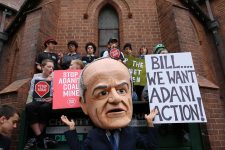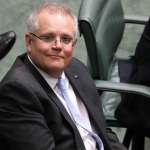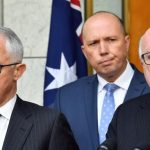The Continuing Violation of the Rights of Future Generations

The twentieth century has been described as the century of war. Those years saw more than 170 million people killed by government, with 10 million lost in the Great War and 50 million during World War Two. Although, somewhat paradoxically, it could also be dubbed the century of rights.
The UN adopted the International Bill of Rights, which is comprised of the 1948 Universal Declaration of Human Rights, and 1966’s International Covenant on Civil and Political Rights and the International Covenant on Economic, Social and Cultural Rights.
But, while these weighty documents have established international principles that recognise all people across the globe have inalienable human rights, these entitlements don’t seem sacrosanct when it comes to the individuals who make up future generations.
Dwindling future rights
This is evidenced in the recent rise of the Extinction Rebellion, which closed down major sections of central London for close to a week in protest of the refusal of current governments to change their policies to ensure that there’s an inhabitable Earth for our descendants.
Although, it’s not only environmental issues that are impinging on the freedoms of future peoples. Since 9/11, governments around the globe have been enacting draconian laws that impact citizens’ civil liberties.
And as NSW Greens MLC David Shoebridge has pointed out on a number of occasions, the danger with these overbearing laws is not necessarily how they’re applied in the present, but, as history has shown, it’s more so how they might be applied by future politicians.
Civil liberties eroded away
The NSW Liberal Nationals government has just been re-elected for another term. And going on its track record of the last eight years, it seems it’ll be chiselling away at some of the civil liberties that we take for granted, which for those in the future might seem like lost freedoms.
The right to silence following arrest is fundamental to our system. However, back in 2013, the O’Farrell government started laying into it. A change to the law now means that if an individual charged with a serious indictable offence exercises this right, a jury can take it as a sign of guilt.
Both O’Farrell and his successor Baird enacted laws that restrict citizens’ behaviour and movement. The 2012 anti-consorting laws mean that a person without a criminal record can be punished with imprisonment if they talk to someone who does have a record after police have told them not to.
And not to be outdone, Casino Mike oversaw the passing of legislation in 2016 that allows senior police to issue orders banning a person from a place or an event for 72 hours a week, while courts can issue directives restricting aspects of an individual’s life, even if they haven’t committed a crime.
A boot stamping on a human face
The federal government has passed over 70 pieces of counterterrorism and national security legislation post-9/11. And this has been incrementally eating away at the rights of all Australians, including those yet to come.
A future descendent may well be born into an Orwellian nightmare, where a biometric facial recognition system enables government to pinpoint any citizen on any CCTV camera and match their face up with the photo on their driver licence. That piece of legislation is yet to be passed.
In this not-so-distant future, our descendent might learn that a close friend has been picked up by the police, when they were found organising drugs for friends over a messaging app, as the authorities were able to read their private messages. That piece of legislation was passed last year.
But, our descendant also falls short of the law, as they get arrested as part of a protest outside of a coal mine in some outback basin and the Army is deployed to haul the demonstrators in because of a perceived threat to property. This legislation was passed in 2018’s last parliamentary sitting week.
No hope for the future
And it’s on the environmental front that the human rights of future generations are completely trampled on, as while, in theory, a progressive government could revoke stifling laws, it’s not going to be able to click its fingers and turn down the temperature.
Right now, we’re three weeks out from a federal election, and the government in power is an avid pusher of fossil fuels. Unelected prime minister Morrison appeared in parliament two years ago carrying a chunk of coal around like the loss of an inhabitable earth for future generations is a laugh.
Currently, environmentalist Bob Brown is leading a convoy across the country to draw attention to the devastation that the proposed Adani coal mine is set to wreak. And as he told Sydney Criminal Lawyers in March, this mine would lead the way for five or six other mines to be established.
But, the Liberal Nationals government fully support the Adani mine. And the Labor Party continue to um and ah over whether they should support it, as it’s of the mindset that all the population is concerned about is the next tax cut.
Forging change is possible
Political activist George Monbiot wrote as the protesters were about to take to the London streets, that, these days, it’s often thought that voting is the only way that change in the system can be affected, as he pointed to civil disobedience being required to prevent ecological collapse.
And despite the fact that Australian governments both federal and state have spent the last half decade passing laws to prevent peaceful protests, demonstrations can still be held without obtaining government sanction. Indeed, that’s how they did it recently in London.
But, it should also be kept front and centre, that a vote for the Coalition on 18 May is guaranteeing that future generations are born into an apocalyptic setting because coal mines and control by security agencies took precedence over their rights and liberties to live as we do.
Image: Student’s out the front of Anthony Albanese’s office in Marrickville on 3 May 2019, protesting the Adani mine and lack of political action on climate change.







